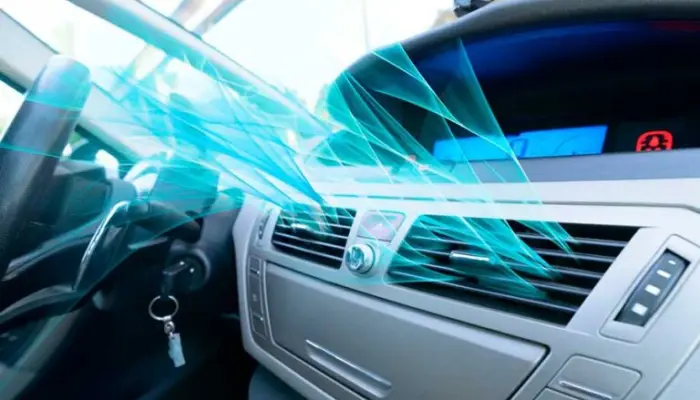An air conditioner in a car is a complex climate system that ensures comfortable cooling in the cabin. Despite the variety of models, the design of all automotive air conditioners is similar, although they may have their own features. All air conditioners operate on the same principle, but unfortunately, sometimes they break down.
What are the common faults?
It's important to note that the repair of automotive air conditioners should be carried out by highly qualified specialists who can competently eliminate any kind of breakdown. At the first sign of malfunction, it's crucial to promptly contact a specialist who can perform the repair at an early stage.
The main components of the air conditioner that can fail include:
- compressor;
- condenser;
- evaporator;
- receiver-drier;
- thermostatic valve;
- fan;
- pressure sensor.
For example, a compressor malfunction can be identified by cracks on the case, worn gasket, as well as by significant noise during its operation and oil traces on its surface.
The condenser plays a key role in the cooling process. If it's heavily contaminated, it leads to insufficient cooling and malfunctions in the climate control system. Cleaning the air conditioner radiator can help solve this problem.
If the unit has reduced efficiency, an unpleasant odor appears, or water accumulates in the cabin, it indicates an evaporator failure. This problem can occur due to contamination or clogging of the tube responsible for draining moisture.
How to prevent the breakdown of the air conditioner?
To prolong the service life of the automotive air conditioner, it's recommended to follow some preventive measures. When the air conditioner is not in use, it's advisable to operate it in cooling mode several times a week for 10-15 minutes. This prevents the components from deteriorating due to inactivity.
When starting the air conditioner in winter, it's important to turn it on only after the cabin has fully warmed up.
During car washing, it's necessary to carefully blow out and wash the condenser, being careful not to damage its thin fins.
General Recommendations for Using the Air Conditioner
To ensure reliable and efficient operation of the automotive air conditioner, it's important to follow several general recommendations. These tips will help extend the life of the system and improve the air quality in the cabin:
- Regular use: Regularly turn on the air conditioner, even in winter, to keep the system operational.
- Gradual cooling: Avoid immediately setting the lowest temperature. Start with a moderate level and gradually decrease it to avoid temperature fluctuations.
- Filter cleaning: Regularly clean and replace the air conditioner filters to ensure effective operation and prevent the spread of unpleasant odors.
- Avoid operating at maximum: Constantly running at full power can lead to rapid wear of the system.
- Turning off before the end of the trip: Turn off the air conditioner a few minutes before the end of the trip to prevent condensate formation in the system.
By following these simple tips, you can maintain your automotive air conditioner in excellent condition, ensuring comfort on the go.
Frequently Asked Questions (FAQ)
Q: How often should the automotive air conditioner be serviced? A: It's recommended to service the air conditioner at least once a year.
Q: Why does the air conditioner emit an unpleasant odor? A: This can be caused by the accumulation of bacteria and mold in the system, especially in the filters and evaporator.
Q: What to do if the air conditioner doesn't cool the air? A: This could be a sign of a refrigerant leak or a compressor problem. It's necessary to visit a service center for diagnostics.
Q: Is it harmful to constantly use the air conditioner? A: Constant use of the air conditioner is not harmful if the system is regularly serviced and the filters are cleaned.
Q: Can I recharge the air conditioner system myself? A: Although there are kits for self-recharging, it's recommended to consult specialists, as incorrect charging can damage the system.
